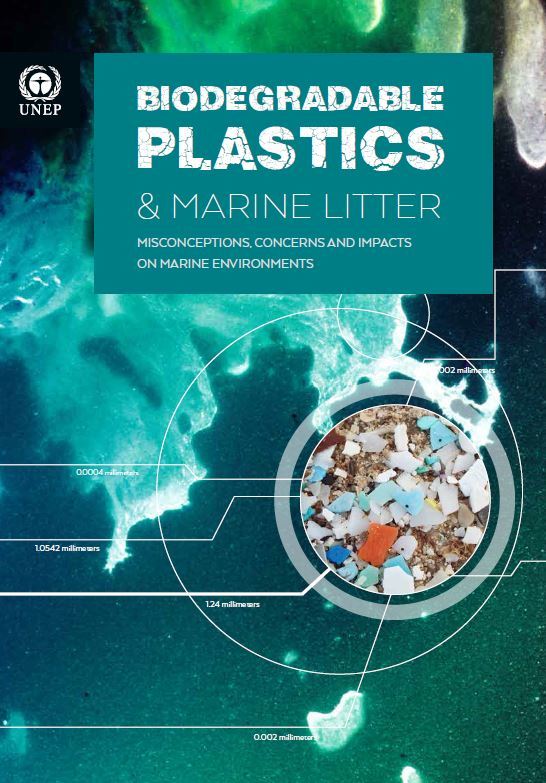UNEP Report: Biodegradable Plastics & Marine Litter
Misconceptions, Concerns and Impacts on Marine Environments
November 24, 2015

Waste Free Oceans applauds the latest report by the United Nations Environment Programme (UNEP) entitled Biodegradable Plastics & Marine Litter - Misconceptions, Concerns and Impacts on Marine Environments which analyzes biodegradable polymers and their link with marine litter.
The report concludes that "the adoption of plastic products labelled as ‘biodegradable’ will not bring about a significant decrease either in the quantity of plastic entering the ocean or the risk of physical and chemical impacts on the marine environment". Indeed, biodegradable polymers degrade significantly slower in the marine environment than on land. Therefore, a widespread use is said to lead to continuing littering problems and its negative impacts. Furthermore, oxo-degradable polymers would only increase the quantity of microplastics in the environment and claims stating otherwise are likely motivated by commercial interests rather than scientific evidence.
Additionally, some studies suggest the ‘biodegradable’ label would only encourage litter to be inappropriately discarded, providing “a technical fix that removes the responsibility from the individual”. Another disadvantage of the biodegradable polymers is the need to separate them from other waste for recycling so as to avoid compromising the quality of the final product.
Waste Free Oceans aligns itself with the conclusions of this study and encourages those who are interested in marine litter to read the attached report in order to understand the misconceptions of biodegradable polymers.
WFO also underlines the need to work on educational tools in order to ensure future generations make better use of our current resources and as such contribute as individuals to the circular economy – building a future where the oceans are waste free.
